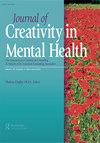为牢固的治疗关系做准备:成瘾咨询师教育中的创造力
IF 0.8
Q4 PSYCHOLOGY, CLINICAL
引用次数: 0
摘要
摘要通过观察对成瘾咨询教育和研究中基于关系和依恋的干预措施的经验支持和理论支持,作者探索了关系深度模型作为成瘾咨询教育中一种潜在的培训模式。这篇文章为成瘾咨询教育工作者提供了培训活动,旨在提高学生的能力,了解与客户的存在和联系。作者详细介绍了使用体验活动来提高这些能力,其中包括反思和讨论应用于实践的问题。作者简要回顾了关系深度文献和最近关于成瘾咨询中关系因素研究和训练的成瘾文献,从而提出了这种训练的基本原理。最后,作者为成瘾咨询教育文献提供了未来的启示,包括在成瘾咨询教育和实践中开发和实证验证关系培训计划的必要性。本文章由计算机程序翻译,如有差异,请以英文原文为准。
Preparing for Strong Therapeutic Relationships: Creativity in Addictions Counselor Education
ABSTRACT In observation of empirical support and theoretical support for relational and attachment-based interventions in addictions counseling education and research, the authors explore the relational depth model as a potential training model in addictions counseling education. This piece offers training activities for addictions counseling educators targeted at enhancing student capacity and understanding of presence and connection with clients. The authors detail the use of experiential activities to enhance these capacities that include questions for reflection and discussion of application to practice. The authors develop the rationale for this training with a brief review of the relational depth literature and the recent addictions literature regarding research and training in relational factors in addictions counseling. Finally, the authors offer future implications for the addictions counseling education literature including the need for the development and empirical validation of relational training programs in addictions counseling education and practice.
求助全文
通过发布文献求助,成功后即可免费获取论文全文。
去求助
来源期刊

Journal of Creativity in Mental Health
PSYCHOLOGY, CLINICAL-
CiteScore
1.70
自引率
16.70%
发文量
18
期刊介绍:
The Journal of Creativity in Mental Health, the official journal of the Association for Creativity in Counseling, a division of the American Counseling Association, is the valuable interdisciplinary reference source for academics and therapeutic practitioners. This refereed journal examines the practical applications of using creativity to help deepen self-awareness and build healthy relationships. This journal also explores how creative, diverse, and relational therapeutic approaches can be used in counseling practice. Each issue of the Journal of Creativity in Mental Health provides a wide range of interdisciplinary discussion relative to diverse mental health issues.
 求助内容:
求助内容: 应助结果提醒方式:
应助结果提醒方式:


